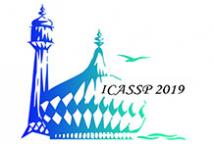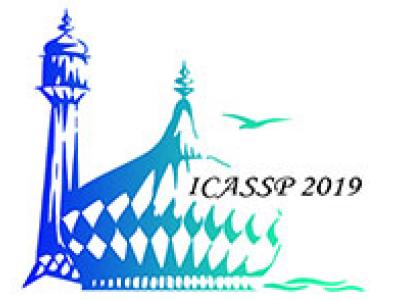
ICASSP is the world’s largest and most comprehensive technical conference focused on signal processing and its applications. The 2019 conference will feature world-class presentations by internationally renowned speakers, cutting-edge session topics and provide a fantastic opportunity to network with like-minded professionals from around the world. Visit website.

- Categories:
 25 Views
25 Views
- Read more about Learning from the best: A teacher-student multilingual framework for low-resource languages
- Log in to post comments
The traditional method of pretraining neural acoustic models in low-resource languages consists of initializing the acoustic model parameters with a large, annotated multilingual corpus and can be a drain on time and resources. In an attempt to reuse TDNN-LSTMs already pre-trained using multilingual training, we have applied Teacher-Student (TS) learning as a method of pretraining to transfer knowledge from a multilingual TDNN-LSTM to a TDNN. The pretraining time is reduced by an order of magnitude with the use of language-specific data during the teacher-student training.
- Categories:
 51 Views
51 Views
- Read more about LoRa digital receiver analysis and implementation
- Log in to post comments
- Categories:
 26 Views
26 Views
- Read more about Robust least squares estimation of graph signals
- Log in to post comments
Recovering a graph signal from samples is a central problem in graph signal processing. Least mean squares (LMS) method for graph signal estimation is computationally efficient adaptive method. In this paper, we introduce a technique to robustify LMS with respect to mismatches in the presumed graph topology. It builds on the fact that graph LMS converges faster when the graph topology is specified correctly. We consider two measures of convergence speed, based on which we develop randomized greedy algorithms for robust interpolation of graph signals.
- Categories:
 89 Views
89 Views
Automobiles have become an essential part of everyday lives. In this work, we attempt to make them smarter by introducing the idea of in-car driver authentication using wireless sensing. Our aim is to develop a model which can recognize drivers automatically. Firstly, we address the problem of "changing in-car environments", where the existing wireless sensing based human identification system fails. To this end, we build the first in-car driver radio biometric dataset to understand the effect of changing environments on human radio biometrics.
- Categories:
 47 Views
47 Views
This paper proposes a group membership verification protocol preventing the curious but honest server from reconstructing the enrolled signatures and inferring the identity of querying clients. The protocol quantizes the signatures into discrete embeddings, making reconstruction difficult. It also aggregates multiple embeddings into representative values, impeding identification. Theoretical and experimental results show the trade-off between the security and error rates.
- Categories:
 2 Views
2 Views
- Read more about Estimation of Gaze Region using Two Dimensional Probabilistic Maps Constructed using Convolutional Neural Networks
- Log in to post comments
- Categories:
 24 Views
24 Views
This paper proposes a group membership verification protocol preventing the curious but honest server from reconstructing the enrolled signatures and inferring the identity of querying clients. The protocol quantizes the signatures into discrete embeddings, making reconstruction difficult. It also aggregates multiple embeddings into representative values, impeding identification. Theoretical and experimental results show the trade-off between the security and error rates.
- Categories:
 10 Views
10 Views
- Read more about wav2letter++ : A Fast Open-Source Speech Recognition Framework
- Log in to post comments
This paper introduces wav2letter++, a fast open-source deep learning speech recognition framework. wav2letter++ is written entirely in C++, and uses the ArrayFire tensor library for maximum efficiency. Here we explain the architecture and design of the wav2letter++ system and compare it to other major open-source speech recognition systems. In some cases wav2letter++ is more than 2x faster than other optimized frameworks for training end-to-end neural networks for speech recognition.
- Categories:
 169 Views
169 Views